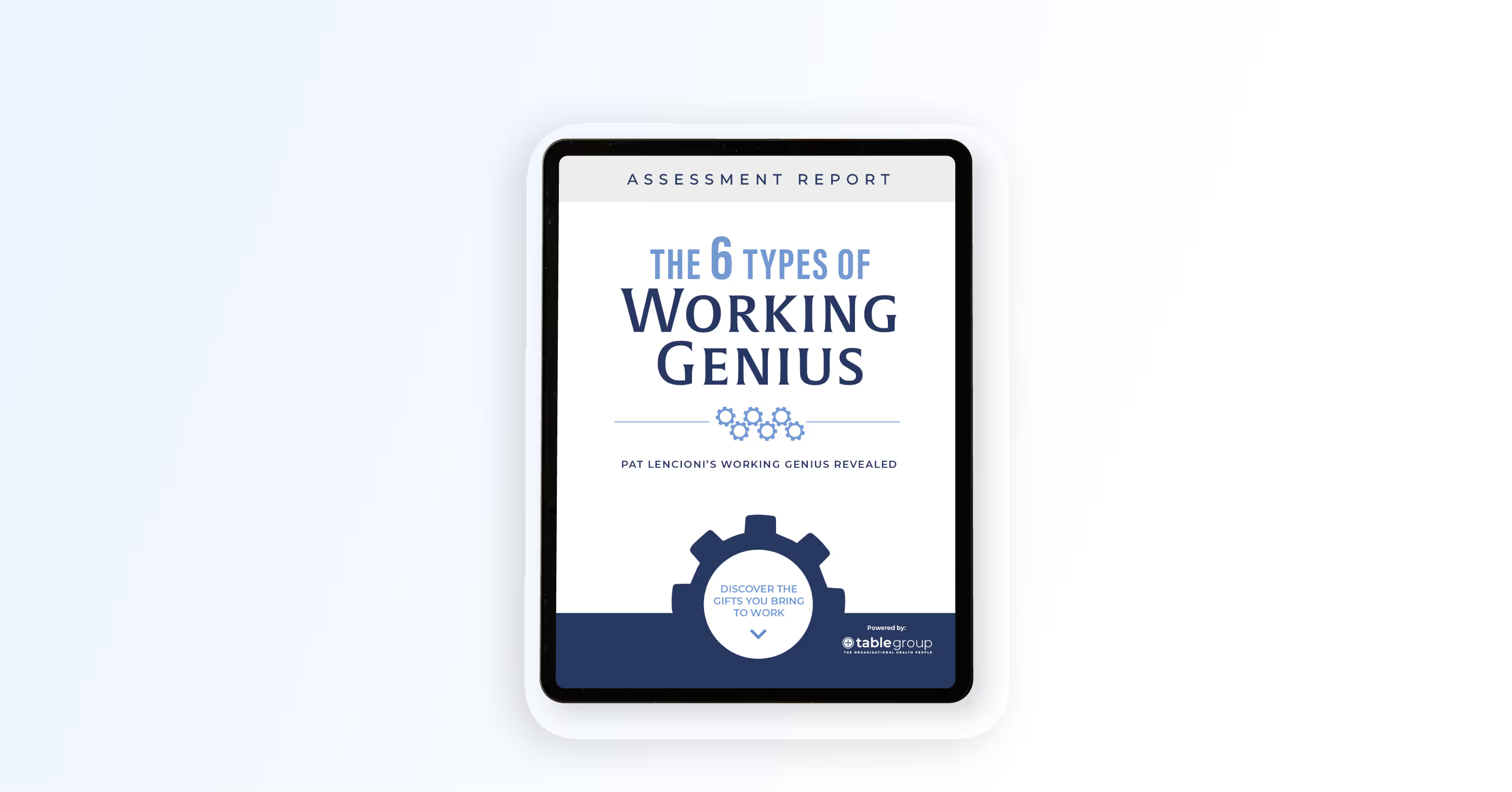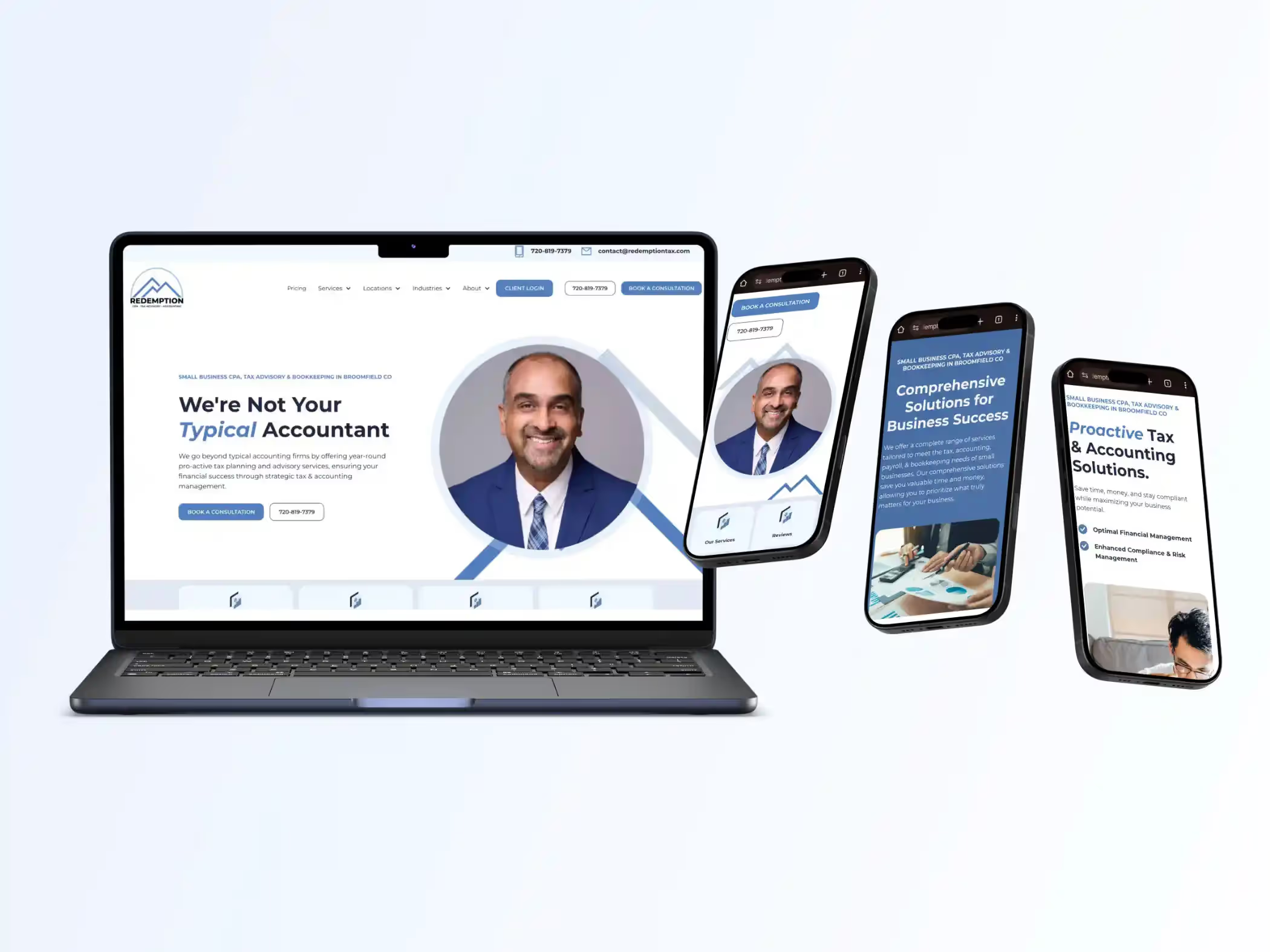4 Marketing & Web Mistakes CPAs and Tax Firms Make
What are CPAs and tax firms doing wrong when it comes to digital marketing?

The Marketing & Web Mistakes CPAs and Tax Firms Make
Is your CPA, tax, bookkeeping or accounting profitable and fulfilling? Is there anything you’d change about it? If you’re truly honest about it, does your business add financial margin and purpose to your life? How many clients, at what revenue and margin percent, would it take for you to be successful? I've met with scores of little accounting firms - and I want to help them. I'd also love to connect with any that are hoping to build a business that's profitable, meaningful, and much simpler than a traditional firm. I've built a successful firm that’s in Minnesota at Nuance Financial, and I’d be willing to bet that your firm would gain additional momentum if we connected.
If you're looking for a new website for your CPA or accounting firm, or if you're looking to run ads or get SEO in place to dominate your local SEO, then book a call on the website here. I love helping accountants build their business, and I've even built some lower-scope websites packages fro $500-$1500 to help you get started.
Here's a couple of other CPA tips and tricks articles you might want to check out:
The Typical Accounting Firm
Bookkeepers, tax advisors, enrolled agents, certified public accountants, and other financial service businesses associated with taxes seem to be struggling a great deal in building the type of company that maintains steady profits and work-life balance without stealing their soul.What do I mean by saying the business steals their soul? Most CPA firms and accounting practices seem to have built a business that causes them to work far too many hours during tax season and then participate in escapist behavior when the season is done.When building our tax and accounting firm, I bumped up against many of your former clients to find that one of the biggest complaints they have is that their accountant is absent outside of tax season.I don't blame you. If I had to work 80 hour weeks during tax season and stare at the Thompson Reuters screen or Drake portal, I would want to turn my email and phone off as well. In fact, I had a tax professional tell me the other day that he loves the business because he essentially has a vacation for half the year since he works so hard during tax season.I'm here to tell you that a CPA, enrolled agent, accounting firm, bookkeeping firm, or payroll company can be one of the most meaningful lines of work and can provide financial stability--if you decide to make some strategic shifts.Not only do small CPA firms experience the feast or famine cycle, but they are often in financial situations that they don't care to talk about. Far too many CPA firms need to rely on a line of credit to cover bills until the harvest comes during tax season.

They have a feast or famine business cycle, they tend to have an ugly financial rhythm, and then they struggle to realize their full redemptive potential.Too many CPAs end up tapping into only a minuscule portion of the overall value they could be adding to clients because they've built a business that is riddled with strategic flaws.Maybe you're a CPA that's reading this article and you just shook your head to those three descriptions above. I'd like you to bear with me and read a little bit more because I didn't want to list out every single problem that I've seen in CPA firms in their business models.If your business is healthy, uber-profitable, and mitigates taxes for your community amazingly - then great for you!If you know your business could use an overhaul or profit injection - this article is for you.Here are 4 mistakes accounting firms make that tanks their business.
Mistake 1: Building a Business on What Comes Through the Doors Rather than Working to Acquire a More Desirable Clientele
The customer that walks in your doors (or calls) with zero marketing or visionary effort probably isn't the type of customer that will build a flourishing practice.If you build a tax firm that focuses on tax returns, you’re going to have a bad time.Seriously, tax returns are a losing game that will turn your business into nothing but a nightmare. I'll explain it here later.Here are three examples to illustrate why you should not build a business based on whatever kind of customer walks through the doors.
First Illustration: Fishing
Imagine for a minute that you’re going fishing at the lake down the road from your home. It's not a massive lake, but it's where you fish for your family and business. As you throw your hook in the water, you find yourself catching nothing but bullheads. Now, there might be a group of people that enjoy eating bullheads, but for the most part, nobody wants to catch bullheads. They taste nasty, they're hard to clean, and are worth very little at market.What People Really Want are Sunfish and Walleyes… Should you just keep catching bullheads? Or should you retool your tackle, hooks, and approaches and try something different so that you can catch the fish you desire?Building a business based on tax returns is the equivalent of trying to live off of bullheads because they’re the easiest to catch.Yes, the bullhead is the easiest because it practically jumps out of the water for you, but you're not going to have a thriving operation focusing on that type of fish.It would be wise to change your approach, your lure, and your presentation in order to catch the type of fish that is worthy of building a business with.
Second Illustration: Candy Store from the Show “The Profit”
One of my favorite television shows is “The Profit,” where billionaire Marcus Lemonis invests in businesses in order to turn them around and make massive profits.In one of the episodes, he comes across a small candy shop. I think this serves as one of the best examples I can think of to illustrate that you should not build a business simply on what walks through the door.Imagine for a moment that you are a confectioner that loves making candy. You go into business for yourself, set up shop, and start making some of the best candy people have ever tasted.If you made a candy store, what would walk through the front doors? People wanting to buy candy.If you own a tax and accounting company, people that need their tax returns will be the ones gracing your presence with little to no marketing effort - the equivalent of candy buyers coming to a candy store.The problem with the candy store is that most people are not going to buy lots of candy, and even though the margins might be high, you need massive foot traffic in order to drive the volume necessary to make a significant profit.Building a business on tax returns is equally futile because you would need to drive a large volume of business in order to make a decent profit. I've found that most small tax firms around the country have a revenue per client of about $300 for individuals, and maybe $1,000 for businesses. Let's say you built a business with 100 individual returns and 30 businesses:
- 100 Individuals @ $300 = $30,000
- 30 Businesses @ $1,000 = $30,000
That's $60,000 in gross revenue from 130 tax returns.Think of how long it would take you to acquire the clientele necessary to make significant profits. Then think of the logistical costs of operation to service the kind of volume necessary… not a good thing.Now let's look at my candy store example. I can't imagine that most people would spend more than $20 on candy when they visit a candy store. Even at an aggressive net profit of 80%, they would need 316 customers a month through their store just to make $60,000 a year in revenue.Now let's take a look at the potential Marcus Lemonis saw when he walked into this candy shop on the show "The Profit.”The first thing that Marcus does is help them become a candy manufacturer for other stores so that they do not have to rely on foot traffic to sell. I don't want to use that example here, but it's worth noting.What would walk through the door of this candy shop? Candy buyers.Instead of simply relying on the typical candy buyer, Marcus encouraged the candy store to start marketing for a better kind of customer. He arranged for birthday parties where kids participate in the candy making process.Marcus realized that birthday parties for kids could drive much more profit than typical candy sales, being that the average cost per child was around $20. When a group of 10 kids would show up, that meant $200 in revenue, which would also create additional candy sales from parents and kids with spending money.What walked through the door was candy buyers, but when the store proactively marketed through their online presence and other channels, they were able to build a thriving birthday party culture which was much more profitable.Birthday parties were more financially rewarding than selling candy to foot traffic, but it took intentional marketing.
Third Illustration: Gym Memberships Vs. Personal Training
This one is pretty obvious because anyone who goes to a gym sees it in action.Personal training costs significantly more than a gym membership, but what would naturally walk through the front doors of a gym is people who want to sign up for the membership.In order to drive the margin-rich personal training services, it requires vision, salesmanship, and a healthy culture of proactive marketing.Bottom Line:The bottom line is that if you build a business around what walks through the doors, your business will not be as successful as you hoped it would be.CPAs, enrolled agents, accounting firms, bookkeeping companies, and other tax-focused entrepreneurs need to identify what they can provide as a valuable solution beyond tax returns or their core product.This leads me to my second point.
Mistake 2: Doing Primarily Taxes
I already touched on this above but I need to talk about it a little bit more. Tax returns are a losing game and the 2016 Super Bowl commercials should show you why.Software companies are making huge advances. During their 2016 Super Bowl commercial, H&R Block focused on their partnership with IBM and their ultra, super, mega, powerful supercomputer called Watson.Do You Have Watson?In fact, isn't your entire practice built on using software that you pay for? If your software went down during tax season, are you even able to do your job?I believe that the software tech giants are waiting for their opportunity to put the tax return business under lock and key by creating government approved, super easy, and relatively inexpensive software to do taxes.I don't want to degrade the value a CPA or accountant adds - I want to illustrate that the entire industry is heavily dependent on software companies that are investing massive amounts of money in creating the best software.I have read many articles that say accountants, tax preparation, and payroll are going to be completely replaced by software and computers in the next 10 to 15 years.I might be wrong, but my first reason you shouldn't focus on tax returns is that you don't want to look like a vacant Blockbuster video store anytime soon because you didn't think ahead.The second reason is that it is a logistical nightmare to service the amount of clients necessary to drive a significant profit.When I ask a budding entrepreneur about what their perfect firm would look like, they usually state that they should have around 400 to 600 clients.When I think of the logistical nightmare of servicing that many clients, I also think of how little value gets added in those types of transactions.When you build massive volume in order to drive revenue, the quality of your work might be diminished, but you certainly cannot add much value to the client.Building a tax return focused practice means you'll add very little value to people.I could go on and on about the reasons why building a practice around tax returns is a bad idea, but I think you get my point."But we're tax professionals, that's what we do!"I believe there is a much better way, and you can read about it in my other article here.
Mistake 3: Using a Template Website Service
Here at FeedbackWrench, we provide custom web design, content creation, and social media management for small businesses in the Minnesota - Twin Cities region.If you go with one of the turnkey website solutions available to tax professionals, you will probably have a website built on duplicate content.When we first got started at our tax firm, we liked the idea of outsourcing our website to a capable system such as CPA Site Solutions or others. These solutions seem like a great deal because they only cost a couple hundred dollars a month, provide a portal system, and take care of all the content.But when I was looking into CPA Site Solutions, I eventually found out that if we went with their product, our website would be identical to every single one of their client’s websites.When you use a template system for your CPA website, you will have duplicate content because everything is the same between all of their clients.Duplicate content is a nightmare when it comes to marketing because Google disregards all of your website content.This means that Google will not index your website, and you will not start ranking for keywords at all. You read that correctly, when you use many of the template CPA website solutions, Google will literally disregard your entire website unless you search for the domain name or your specific business name.That means people can only find you if they already know your name. What good is that in attracting new clients?Not only is your website built on duplicate content, but you are ultimately renting the space from them. You do not own your content, it is not yours. When you cancel your plan with them, everything goes.This can be frustrating as a CPA firm, enrolled agent, Minnesota tax firm, or any other accounting business because these companies have very slick marketing. They make it sound like they're helping your business out, when in reality they are the equivalent of a super high fee mutual fund that performs poorly.Template website systems are basically an online business card that works only when someone already knows you.If you want to have a successful accounting practice, you need to build your own website and I think you should work with us here at FeedbackWrench.There's much more that goes into building a web presence that attracts the right clients, and I'd love to connect over coffee to see if we might be a resource.
Mistake 4: Avoiding Proactive Engagement With Clients
Value is all about perception.I'm not saying that value is created by marketing, but I am saying that if your client has no idea that you're helping them out, they will not completely understand the value you are bringing.One of the biggest problems with an accounting firm is that clients seldom understand the full value being added to them because everything is outside of their competencies.If you build a practice like I recommend that focuses on being a proactive outsourced accounting firm, then you will have an opportunity to add tremendous value.If you add tremendous value, you need to find ways to build the perception of value.One industry that CPAs can learn from is investment advisors for the wealthy. While most financial advisors, investment representatives, and other financial professionals are sleuths, there is a group that works with very high net worth clients and seems to do a very good job at it.One firm that consistently ranks as the highest net worth investment firm is Merrill Lynch Wealth Management.There is a book called The Supernova Advisor Quote that Explains How Merrill Lynch Retooled their Operations to Serve High Net Worth Clients.What I learned from this book is that one thing Merrill Lynch learned was proactive communication on a schedule about meaningful information. This is what drove perceived value.In this book, they talk about how an advisor should have proactively scheduled phone calls with their clients on a rhythm.The rhythm was interesting because there were annual, quarterly, and monthly communications. Not every one of those proactive communications was in person or very long, but they were always proactively scheduled and the advisor was trying to add some value.The advisor was to have an agenda so that the conversation was purposeful and valuable. Having an agenda to tackle an issue is much more helpful than simply calling and asking if somebody has questions.Proactive communication in the accounting world should be tackling different issues in a clear, concise, and directional manner. I dive into it in different articles, but proactive tax planning with the goal of mitigating taxes is how an accountant can have the most meaningful relationship with a customer.The bottom line here is that if you build a practice on tax returns, you only take the business that walks through the doors, and you don't proactively communicate meaningful information throughout the year to your clients, you're going to have a mediocre practice at best.if you're looking for a company to help you find a website for your CPA firm or websites for bookkeeping companies, then we would love an opportunity to connect either on the phone or over a cup of coffee to discuss the different options you have available.We're not just a CPA website company, an SEO company for accountants, or a digital marketing company for tax professionals--we are an outsourced team meant to make small businesses great.We combine strategic planning with high-value website and search engine optimization services, as well as a business-focused strategic plan to help small businesses make the web their best employee.I personally have an appreciation for tax professionals and accountants because they are completely complementary to my strengths and gifts. When we started our accounting firm, we decided that it was most important to have the approach around being an outsourced accountant that did two things – help mitigate taxes and help business owners focus by handling all the messing around. Tax professionals, enrolled agents, CPAs, and bookkeepers are amazing, process-oriented people that have higher attention to detail – I love them.
Final Thought:
That's probably the biggest problem for accountants – they need to partner with organizations or people that have complementary gifts.I always chuckled to myself when an accountant would call our tax firm and explain why they don't need our services but just wanted us to do their taxes.A tax advisor, accountant, or certified public accountant should exist to help the people out there that need their help the most. Those that face the highest taxes, benefit from focusing, and have great opportunity ahead of them are the most promising prospects. Small businesses are the ones that fit this requirement best.CPAs need to focus on small businesses, and build a practice that adds tremendous value.
Free Guides & Blog Categories
We invest heavily in helpful content that assists small businesses owners.
Book a Consultation & Transform Your Business
Ready to transform your business? Book a call with Rob.












.avif)
.avif)









